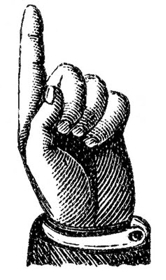Like the Thing surname (see article here), the Pray surname is a bit hard to research because it is such a common word. Added to that are the various theories as to origins, three at least, and none of them have anything to do with the most common way we use the word “pray” today. The theories are:
House of Names: Actually House of Names has both an English and Irish theory. In England the name may have been derived from the Latin word “praetor”, which meant someone who served as chief magistrate or bailiff of a district. Spelling variations might include Prater, Prather, Preater, Pretor, Prether and more. In Ireland the name may have been “Preith” or “O Preith” with origins from a Pictish (ancient language that no longer exists) word “predhae”. Irish spelling variations include O’Pray, O’Prey, Prey, Preay and others.
Ancestry.com: The Irish version may have been a variant of “Prey”. The English version may have been a topographic name for someone who lived near a meadow, derived from the Middle English word “pre(y)”. The word could also have originated in France, and brought over following the Norman Conquest, because “pree” in Old French means meadow as well.
4Crests: Their theory leans heavily on French origins, also agreeing that the name was topographic for someone living near a meadow. Derived from the Old French word “pred” with origins in the Latin word “prata”, this theory supports spelling variations different from those listed above, including: Pree, Prey, LaPraye, Dupre, Depuy, Despres and Prada. The French name “Duprè” means “from the meadow”. This theory makes me wonder if one of my ancestors, Francis Dupee, was of French descent.
Early American Prays
Quentin (or Quinton) Pray was born in England in 1595, and with his family boarded the “good ship Ann Cleeve of London” in May of 1643. On the same boat was John Winthrop, Jr., son of the founding governor of the Massachusetts Bay Colony, John Winthrop. Winthrop’s plan was to establish an iron works in Massachusetts.
 Quentin, a skilled iron worker, settled first in Kittery, Maine, while his sons John and Richard settled in Rhode Island. He worked at the iron works in Kittery as a fineryman, later transferring to Lynn, Massachusetts in 1647 and finally transferring to the Iron Works Company, established by Winthrop in Braintree where Winthrop.
Quentin, a skilled iron worker, settled first in Kittery, Maine, while his sons John and Richard settled in Rhode Island. He worked at the iron works in Kittery as a fineryman, later transferring to Lynn, Massachusetts in 1647 and finally transferring to the Iron Works Company, established by Winthrop in Braintree where Winthrop.
Quentin Pray died intestate on July 11, 1667. His wife Joan was declared his widow by the court so that his estate could be distributed among his heirs. Richard remained in Providence, but John died in Braintree in 1676.
Musings on the Pray Name
Associating the surname Pray with its more common meaning today, I found at least one that seemed appropriately paired: Alice Church Pray of Kennebec County, Maine. Deacon Benjamin Pray lived in New Hampshire and his second wife was Dorcas (a biblical name) Pray (Dorcas Pray Pray, probably cousins). Two more biblical names: Zerubbabel Pray (Kennebec County, Maine) and Eliphalet Pray (York County, Maine).
One unusual name I came across that I want to research further was Pardon Potter Pray of Providence County, Rhode Island. His English immigrant ancestor was perhaps John Pray, Quentin’s son. One other aspect I found interesting while researching Pardon Potter Pray was finding that Rhode Island, and specifically Providence County, was full of men named “Pardon”. There must be a story there and you may find it here one day!
 Did you enjoy this article? Yes? Check out Digging History Magazine. Since January 2018 new articles are published in a digital magazine (PDF) available by individual issue purchase or subscription (with three options). Most issues run between 70-85 pages, filled with articles of interest to history-lovers and genealogists — it’s all history, right? 🙂 No ads — just carefully-researched, well-written stories, complete with footnotes and sources.
Did you enjoy this article? Yes? Check out Digging History Magazine. Since January 2018 new articles are published in a digital magazine (PDF) available by individual issue purchase or subscription (with three options). Most issues run between 70-85 pages, filled with articles of interest to history-lovers and genealogists — it’s all history, right? 🙂 No ads — just carefully-researched, well-written stories, complete with footnotes and sources.
Want to know more or try out a free issue? You can download either (or both) of the January-February 2019 and March-April 2019 issues here: https://digging-history.com/free-samples/
Thanks for stopping by!
Hi, you mention above that you have an ancestor named Francis Dupee. Any luck chasing him down since you posted this? He is in my family tree as well and I am having a hard time tracing anything after him.
Really about the only thing I know about him is that he died during the Civil War (Union) in Beaufort, SC (of measles). His father may have been French Canadian. Thanks for stopping by .. guess we would be cousins?
I have Quinton in my family tree. Great grandfather Lloyd Pray’s line. From what I understand so far, Quinton’s son John had a son named Ephraim?
Thanks for stopping by and adding to the Pray story!
John Pray…cool name
I am trying to find the parents of Isaac Pray 1800-1850 buried in Belgrade, Maine. His wife is named Experience and his son is Isaac Y Pray. Does anyone have any leads?